I am getting a date time value from asp.net mvc controller as "2014-08-31T00:00:00Z". When I bind this value to my angular-ui datepicker control it's state is showing as ng-invalid ng-invalid-date.
I am getting the date-format as well from the mvc controller so I am binding the date-format as well in my html.
When I am debugging the ui-bootstrap-tpls.js (latest version) file at line 1807
It's always coming as undefined. I have tried so many alternatives but I am unable to succeed. :(
javascript does't convert angular ui datepicker date to UTC correctly
So please give some thoughts and suggest me how can I solve this problem.
Thanks & Regards, N.Murali Krishna.
